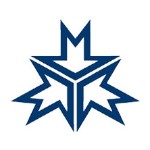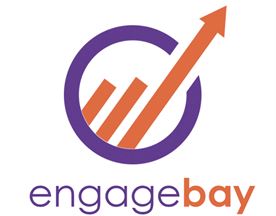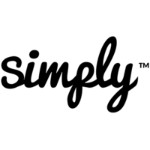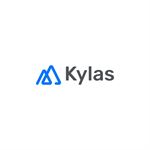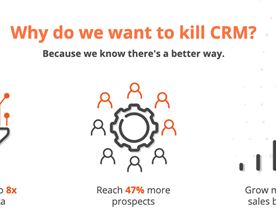Coaches play a vital role in helping individuals and organizations achieve your goals. However, managing client relationships, schedules, and progress can be a challenging task. This is where a CRM system comes in. A CRM system helps coaches to streamline your work processes and manage your client interactions effectively. With numerous CRM options available, it can be challenging to determine the best CRM software for your coaching business.
What Is CRM Software (Customer Relationship Management system)
The acronym CRM means Customer Relationship Management system. This refers to a system or a set of advanced collaboration tools used to manage and analyze interactions and data from coaching clients, prospects, and customers throughout the customer lifecycle.
The goal of a CRM solution for a coaching business is to improve client satisfaction and loyalty, increase efficiency, and drive growth. Because CRM systems are all about helping you with relationship building they are key to your coaching business. A coaching CRM typically includes features such as contact management, appointment scheduling, progress tracking, communication management, sales tools and marketing tools. By using a CRM, coaches can better understand your clients’ needs, prioritize your time, and personalize your approach, leading to better results and more satisfied clients.
A good CRM system helps personal trainers, life coaches, business coaches, wellness coaches and health coaches to provide coaching packages and assign tasks to new prospective clients to improve business management and manage all client accounts safely. Better CRM systems will have advanced features and will influence your sales pipeline with sales intelligence and help you to offer online courses and take online payments. Overall, the advanced features of a CRM are highly serviceable to coaches for creating personalized training programs that work well in the coaching industry.
In this post, we will explore the best CRM software specifically designed for coaches to help you choose the right one for your coaching business.

7 Downsides Of Not Using A CRM In Your Coaching Business:
The consequences of not adapting your business to utilise the latest technology can be significant. Lets take a look at 7 downsides to not using a CRM.
Inefficient customer management:
Without a CRM, coaches may struggle to keep track of customer interactions and information, leading to inefficiency and potential errors.
Missed opportunities:
Without a centralized system to track leads and opportunities, coaches may miss out on potential sales and business growth.
Lack of performance tracking:
Without a CRM, coaches may have difficulty tracking your performance and making data-driven decisions to improve your business.
Poor customer engagement:
Without a CRM, coaches may struggle to effectively engage with your customers and build strong, lasting relationships.
Increased workload:
Without a CRM to automate repetitive tasks, coaches may find themselves overwhelmed with administrative work and struggling to focus on your core coaching activities.
Incomplete customer data:
Without a centralized database, coaches may miss important details about your customers, leading to poor decision-making and decreased customer satisfaction.
Limited scalability:
Without a CRM, coaches may find it difficult to grow your business and scale your operations effectively.
In short, not using a CRM in a coaching business can lead to inefficiency, missed opportunities, poor performance tracking, poor customer engagement, increased workload, incomplete customer data, and limited scalability.

Best CRM Features for Coaches
The best CRM for coaches should have the following characteristics:
Contact Management:
A comprehensive contact database that allows coaches with your client management tasks to manage client information and communicate with them efficiently.
Appointment Scheduling:
A feature that helps coaches manage your schedules and set appointments with clients.
Progress Tracking:
A system to track client progress and monitor your goals, ensuring coaches provide the best support possible.
Communication Management:
A coaching platform for coaches to communicate with clients through various channels such as email, SMS, or chat.
Sales and Marketing Automation:
A set of tools that automate repetitive sales and marketing tasks, freeing up time for coaches to focus on providing high-quality coaching services.
Each of these characteristics is essential for a coaching CRM to be effective. Contact management allows coaches to keep client information organized, while appointment scheduling software helps them keep track of your schedules. Progress tracking enables coaches to monitor client progress and make adjustments to your approach if necessary. Communication management provides coaches with a centralized platform to communicate with clients and maintain strong customer relationships, while sales and marketing automation helps coaches to streamline your sales and marketing strategies and processes and increase efficiency. By having these features, coaches can provide better support to your clients and achieve better results.
Top CRMs for Coaches
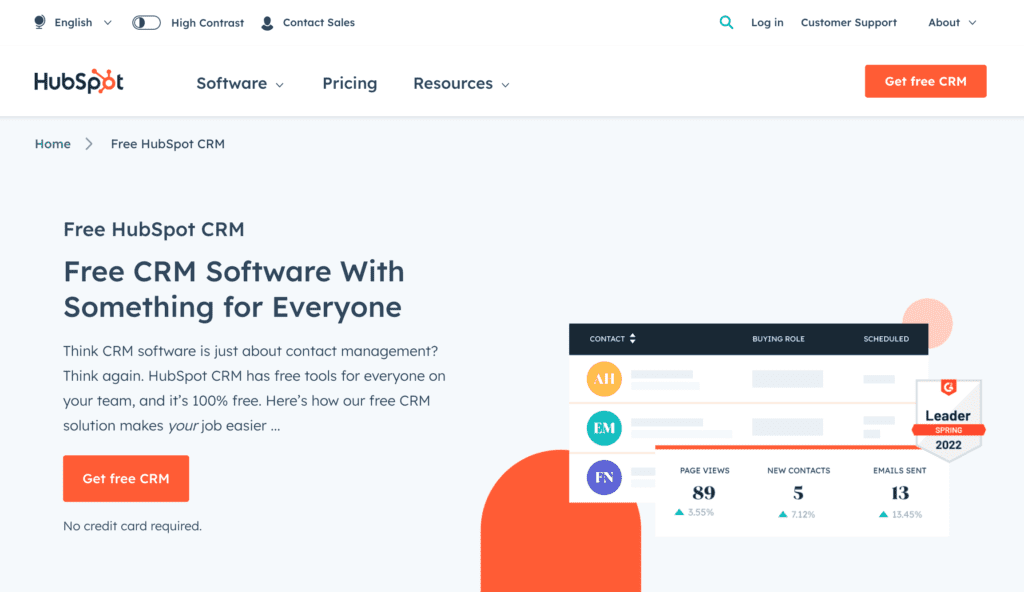
Hubspot CRM
HubSpot CRM is a client relationship management software (CRM) platform that helps businesses manage interactions with potential clients and current clients. It provides a centralized database of customer information and offers tools for tracking, managing and analyzing customer interactions and data. Features include contact management, lead capturing, email tracking, deal and pipeline management, and customizable reporting. HubSpot CRM is designed to integrate with other HubSpot tools and is free to use.
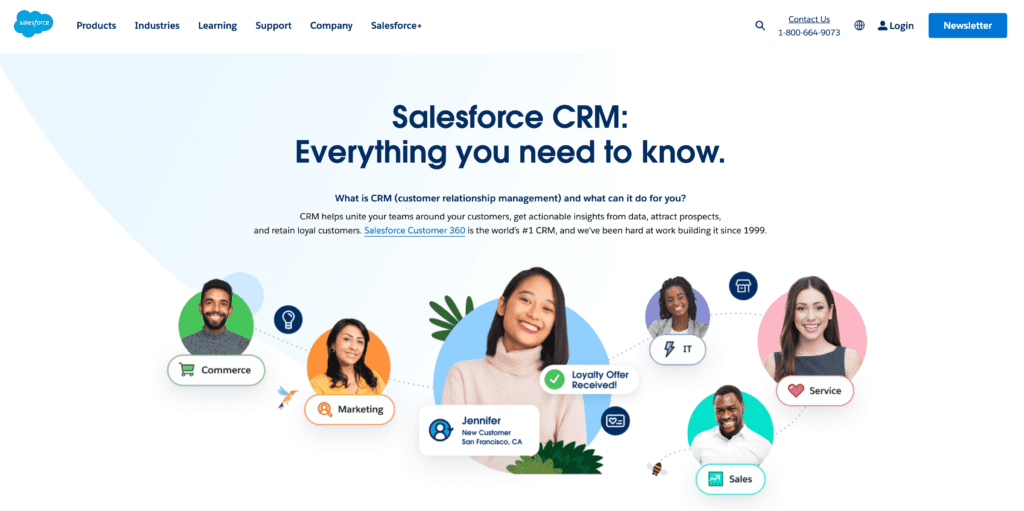
Salesforce CRM
Salesforce CRM is a cloud-based customer relationship management platform that helps businesses manage interactions with customers and prospects. It provides tools for sales automation, customer service, marketing automation, analytics, and app development. The platform is highly customizable, allowing businesses to adapt it to your specific needs. Key features include lead and opportunity management, account and contact management, forecasting, and reporting. Salesforce CRM is widely used by organizations of all sizes, from small businesses to large enterprises, and is known for its scalability and robust feature set.
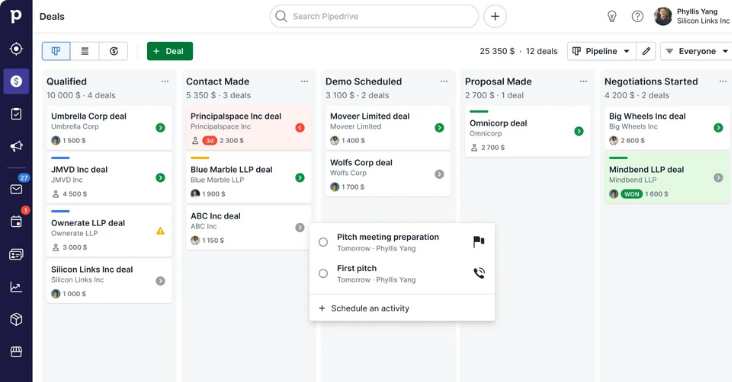
Pipedrive CRM
Pipedrive is a cloud-based customer relationship management (CRM) platform designed to help small and medium-sized businesses manage your sales activities and customer interactions. It is known for its simplicity and ease of use, offering a visually oriented interface that makes it easy to manage deals, track emails and calls, and view sales performance. Key features of Pipedrive include deal and pipeline management, email tracking and integration, activity scheduling, and customizable reporting. Pipedrive also offers a range of integrations with other tools, including email marketing platforms and payment gateways, to help businesses streamline your sales processes.
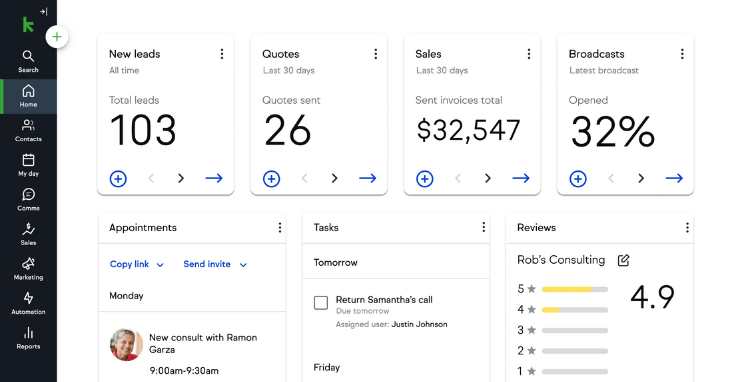
Keap CRM
Keap (formerly Infusionsoft) is a cloud-based customer relationship management (CRM) and marketing automation platform for small businesses. It offers a range of tools for managing contacts, automating repetitive tasks, and delivering targeted marketing campaigns. Key features include email marketing, lead scoring, e-commerce, appointment scheduling, and customizable reporting. Keap also provides integrations with popular payment gateways and other business tools, such as Google calendar to help businesses streamline your operations. The platform is designed to help businesses automate your sales and marketing processes and improve your customer engagement.
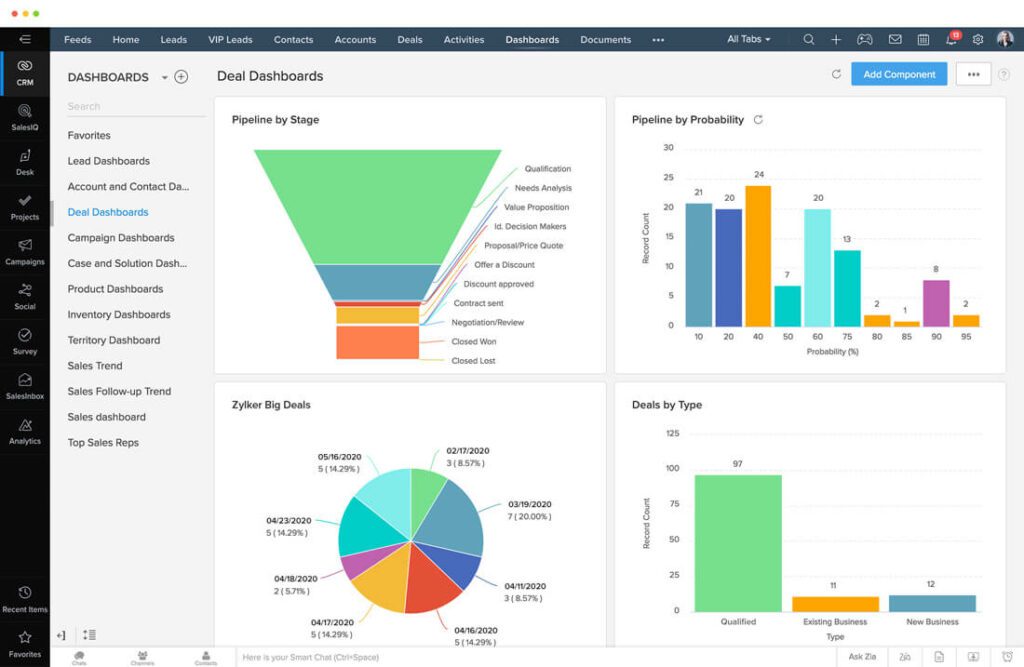
Zoho CRM
Zoho CRM is a cloud-based customer relationship management (CRM) platform that helps businesses manage your customer interactions and data. It provides a range of features for sales and marketing automation, customer service, and analytics. Key features include lead and opportunity management, contact management, email marketing, and customizable reporting. Zoho CRM also offers integrations with other Zoho applications as well as third-party tools to help businesses streamline your operations. The platform is suitable for businesses of all sizes, from small businesses to large enterprises, and is known for its affordability and scalability.
CRM for Coaching Business – Frequently Asked Questions
Here are some frequently asked questions about CRMs for coaches:
What is a CRM for coaches?
A CRM for coaches is a customer relationship management platform designed specifically for coaching businesses. It helps coaches manage your customer interactions, schedule meetings and coaching sessions, track leads, and analyze performance.
Why do coaches need a CRM?
A CRM can help coaches manage your customer data and interactions more efficiently, improve your customer engagement, and make data-driven decisions.
What are the key features of a CRM for coaches?
A CRM for coaches should include scheduling appointments, lead tracking, session management, email integration, and customizable reporting.
How can a CRM help coaches grow your business activities?
A CRM can help coaches automate repetitive tasks, improve your customer engagement, and track your performance, which can lead to increased sales and business growth.
What should I look for when choosing a CRM for coaches
When choosing a CRM solutions for coaches, consider factors such as ease of use, customizability, integration with coaching tools, performance tracking and reporting, mobile accessibility, affordability, data security, and customer support.
How much does a CRM for coaches cost?
The cost of a CRM for coaches can vary, depending on the features and functionality offered. Some CRMs offer free version with limited features, while others have monthly or annual subscription plans starting at $10-$50 per user.
Is a CRM for coaches difficult to use?
The ease of use of a CRM for coaches can vary, depending on the platform. Some CRMs are designed for simplicity and ease of use, while others may have a more complex interface. Consider your technical proficiency and choose a CRM that meets your needs.
Can I access my CRM for coaches from my mobile device?
Most CRMs for coaches offer mobile apps for iOS and Android, allowing coaches to access and manage your customer data from anywhere.
Conclusion
CRM software can be an invaluable tool for managing customer interactions, automating repetitive tasks, task management and tracking performance.
When choosing a CRM for your coaching business, it is important to consider factors such as ease of use, customizability, integration with coaching tools, performance tracking and reporting, mobile accessibility, affordability, data security, and customer support.
With the right customer relationship management system, coaches can grow your business, improve your customer engagement, and make data-driven decisions.
Find hundreds of CRM solutions rated and reviewed in our Software Marketplace


